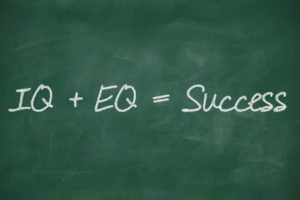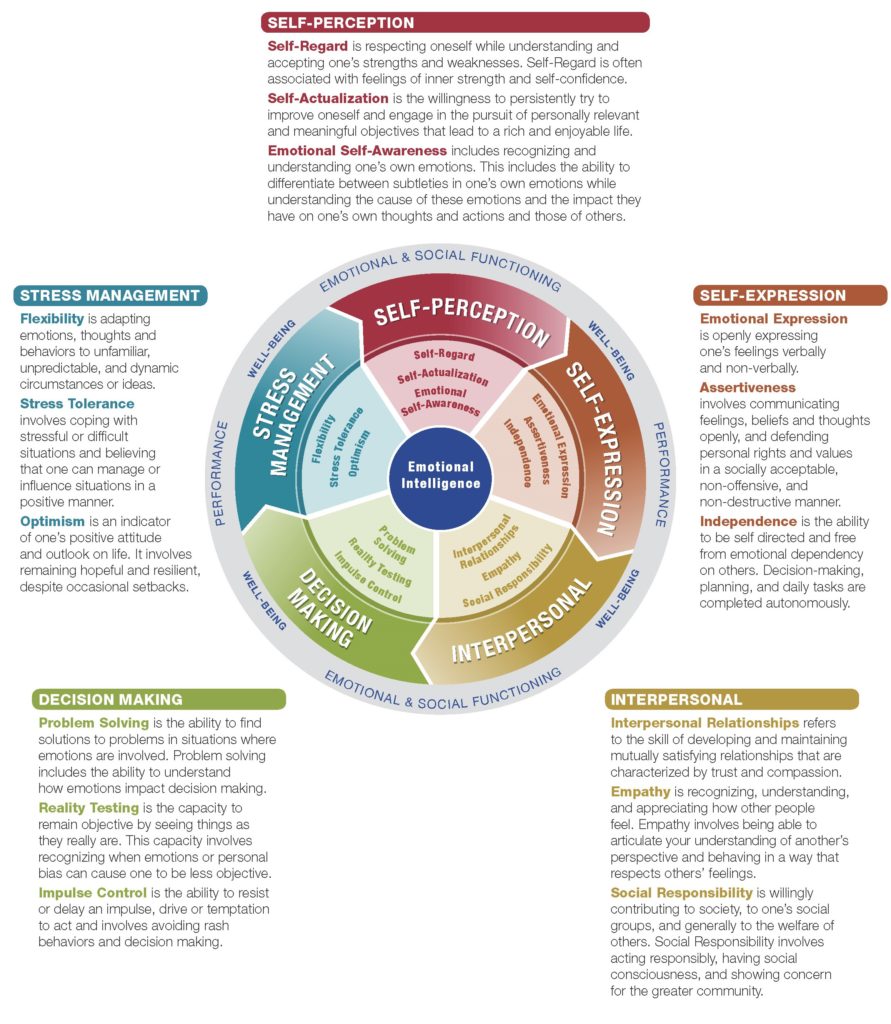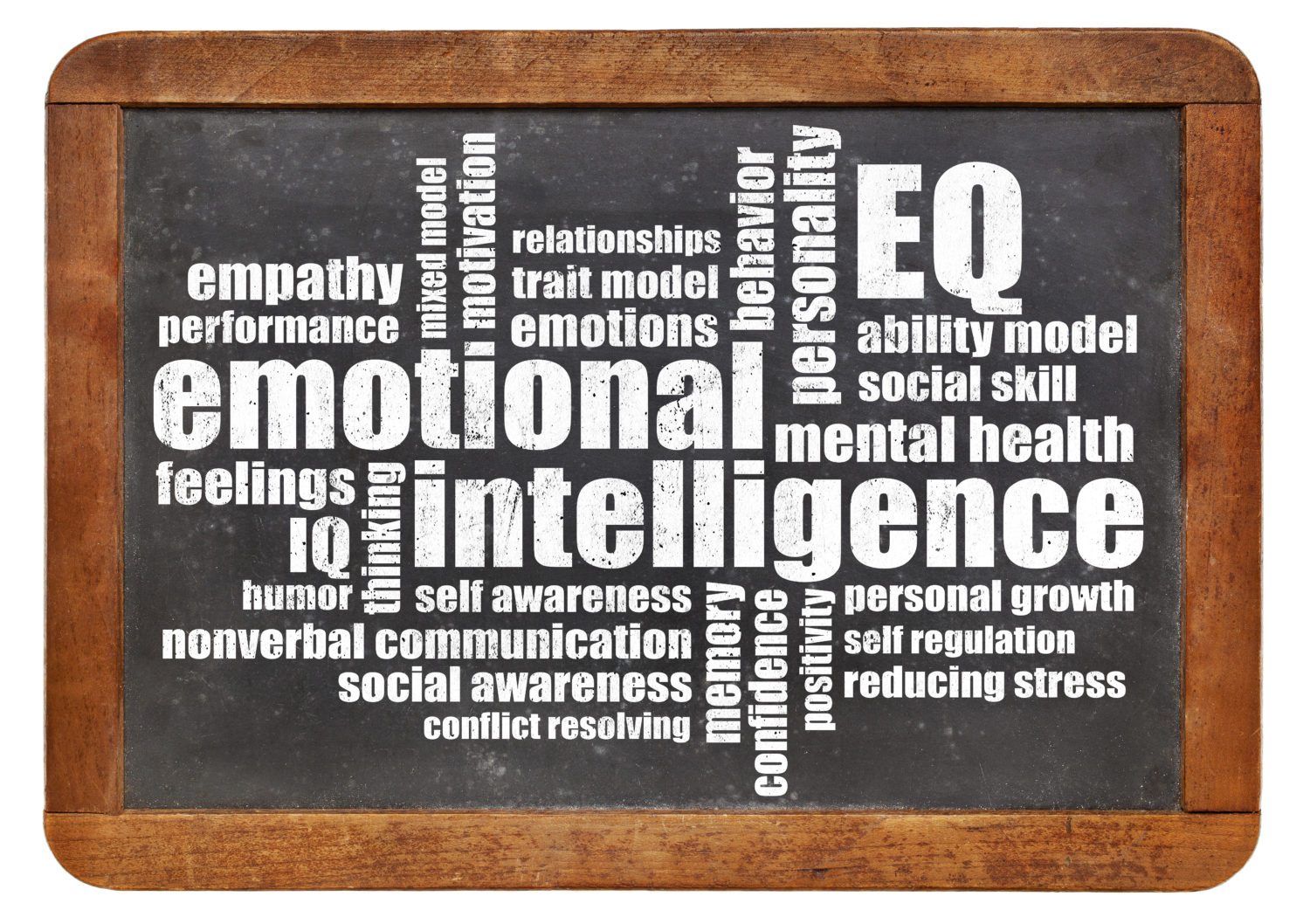Emotional Intelligence



Defining EI

Emotional intelligence is defined as “a set of emotional and social skills that influence the way we perceive and express ourselves, develop and maintain social relationships, cope with challenges, and use emotional information in an effective and meaningful way.”
Emotional intelligence (EI) as defined here and applied in the Emotional Quotient Inventory (EQ-i 2.0) reflects one’s overall well-being and ability to succeed in life.
EQ-i 2.0 Model Of Emotional Intelligence
The EQ-i 2.0 assessment is a respected, valid and reliable measurement of one’s emotional intelligence.
V2P clients are leaders in their fields, often due to experience, hard work and intellect.
The insights from EQ-I 2.0 help reveal to our clients how they can be their better, more-aware, productive selves.

Why is EI important?
While emotional intelligence isn’t the sole predictor of human performance and development potential, it is proven to be a key indicator in these areas. Emotional intelligence is also not a static factor — to the contrary, one’s emotional intelligence can change over time and can be developed in targeted areas.
Employee development
The EQ-i 2.0 measures the interaction between a person and the environment he/she operates in. Assessing and evaluating an individual’s emotional intelligence can help establish the need for targeted development programs and measures. This, in turn, can lead to dramatic increases in the person’s performance, interaction with others, and leadership potential. The development potentials the EQ-i 2.0 identifies, along with the targeted strategies it provides, make it a highly effective employee development tool.

